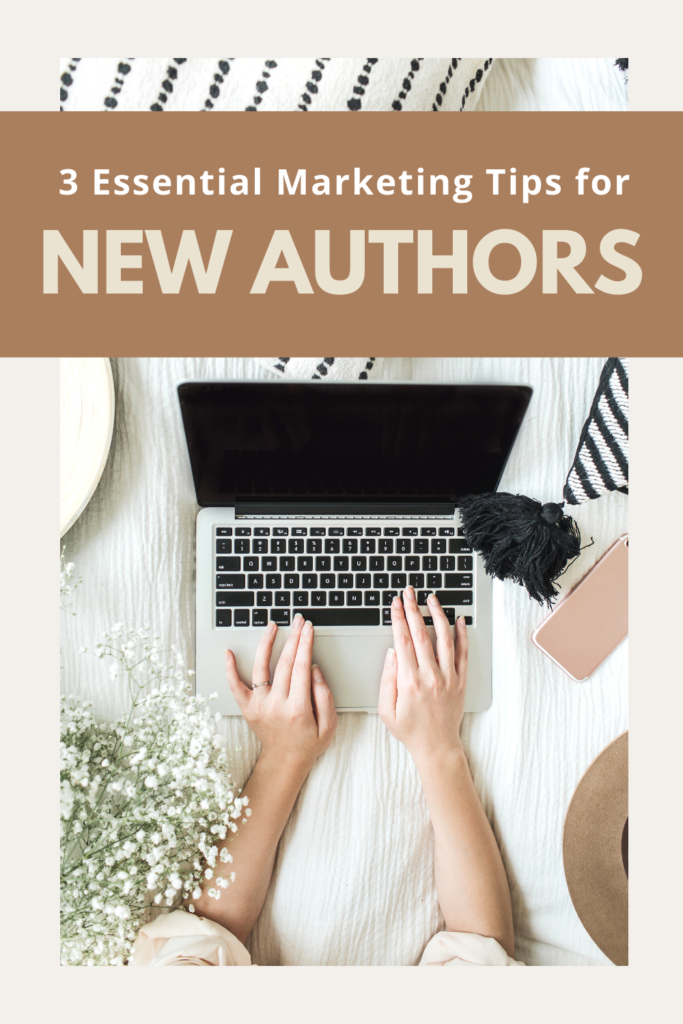
3 Essential Marketing Tips for New Authors
I visit and consult with aspiring and newly minted authors often. They literally are sponges, soaking up information and advice in an effort to write a great book, be traditionally published, build a following of fans, and/or market their books. Today I’m sharing book marketing tips for new authors.
In a serious presentation of your book to a professional buyer, the buyer won’t ask “is it well written?” It’s already assumed it is. In your attempt to deliver a well-written manuscript, recognize you must deliver a whole lot more than that.
Great books are “sold” in a short time with a lack of verbosity. An outstanding book will have the person across the table in a matter of seconds and wanting to hear more. Mediocre writing packaged in uninspiring books on topics of no interest to anyone requires a lot of hard selling. If a salesperson has to make a federal case for your book, that’s bad news for you.
Related Post: Book Marketing Ideas to Help Authors Increase Sales
Book Must Meet A Readers Need
A sales professional will start with your content, its topics, and the author; but will quickly transition to how it will meet the needs of readers. Take this into account before you begin writing, and you will greatly facilitate the success of your book well beyond its authorship.
Succinctly describe your book’s target market. This is more complex than most think, but it must be easy to convey. Who buys children’s books? Juvenile fiction? Mother’s Day gift books? This will impact how you package (title, subtitle, front cover design, and back cover copy) your book. If you intend to pitch your book to a literary agent in pursuit of a traditional publishing deal, you’re likely to never leave the gate if you can’t articulate who your reader is.
Price & Content Marketing
The price of your book is secondary at best. If your eBook isn’t selling at $8.99, then $4.99 will not light the fire. Price only changes the quantity consumers demand, but if your demand curve is anemic and flat as a pancake, then you’re stuck. It’s time to think about “content marketing” in the form of free downloadable samples, great endorsements, insightful reader reviews, a fresh book description, etc. That’s just for starters.
Traditional publishers presell an entire list of books months in advance with little more than a front cover, table of contents, great book description, author bio, and book specs. They never read a portion of the book to the buyer. On the elements listed here, you must be stellar. If you can’t be, then you probably have a content problem.
Your book may be better than insert famous bestselling author name here, but they have huge name (brand) recognition, an installed user base, and sales momentum. Of course, it’s helpful to compare or contrast your book with a well-known title for evaluation purposes. But take care in unfairly comparing you and your book to a metric that will make you feel defeated.
Public Relations Caution
There is no faster way to separate yourself from your money than through marketing and public relations (PR). Don’t get me wrong, Fitting Words is big believer in marketing and PR. But an indie author has very different objectives than an author who is traditionally published. Step into the world of marketers and PR firms carefully, connecting the dots all the way to making sales or creating website traffic. Create a list of achievable objectives before you launch a campaign. And make sure it’s at a price you can afford and sustain. Don’t buy into the myth of instant results from mere advertising.
About the Author
Dan Wright is the owner of Fitting Word , LLC. A hybrid publisher offers a comprehensive list of services to independent authors, institutions, and other publishers. During his career, he has worked in the traditional publishing industry and managed Christian bookstores.




